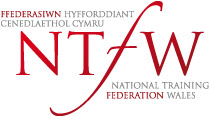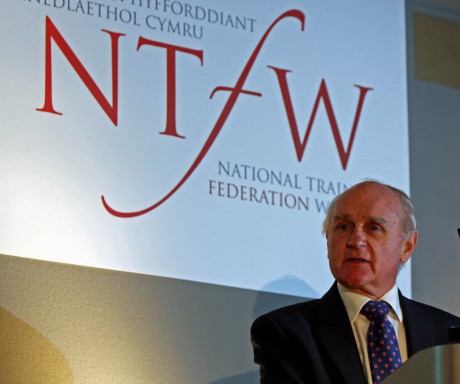
Proposals Will Deliver Cost-Effective Training – Lord Ted Rowlands, President, NTfW
Earlier this summer, the National Training Federation for Wales’ (NTfW) submitted a set of proposals to the Welsh Assembly Government which we consider are key to the delivery of improved and more cost-effective front line learning services.
Our proposals are challenging but identify sustainable improvements to skills development for those of all ages seeking to optimise their employment future in a diverse and exciting Welsh economy.
Very mindful of the current economic situation, we outline how high quality programmes can be delivered successfully on a restricted budget. In these difficult times we must all work together.
To develop effectively lifelong employment skills, vocational training must have a strong work related or work placement basis. Current and future employees need to develop confidence, team working and reflective learning skills. They must also be active learners to remain occupationally mobile to respond to rapid labour market and technological changes and to assist the economy to prosper and develop.
WAG’s Skills That Work for Wales vision wishes to create a highly skilled
workforce ready to embrace emerging future technologies and services. Any programmes developed to achieve this aim must be affordable, sustainable, meet local, regional and national economic needs and have the learners’ short and long term aspirations, their learning styles and motivations at the core.
The NTfW believes that delivery must be streamlined to build on existing high quality provision and facilities and identify and address gaps in provision. We must maximise collaboration and learn from best practice in all sectors and not just pay lip service.
There are some superb initiatives in Wales which, sadly, have been moulded to fit the status quo. Had they been developed and implemented as designed, they could have resolved some of the enduring and underlying problems relating to skills development and the disengagement of children, young people and adults from education, training and employment.
Here are our key proposals:
The establishment of a robust and effective collaborative framework among the main providers – careers, schools, colleges and work based learning providers. This framework will identify and develop individual learning and training options at key transition periods between Key Stages 3 and 4 and post 16 learning, or earlier for those young people who are recognised as being at risk of disengagement.
To enable this to happen the framework must ensure independent, unbiased and broad spectrum phased advice and guidance to all learners at all key transitional points of their learning. In addition, flexible and accessible funding streams must be established instead of money being channelled into too many silos and separate departments, which do not work together.
We want to see a mandatory accredited employability module introduced, based around existing work experience arrangements within the curriculum at Key Stage 4. Employability and work experience modules must be integrated into all Key Stage 5 (school and further education based) and undergraduate programmes. This will encourage young people and the education system to recognise that employment is one of its key outcomes.
The NTfW is calling for performance figures published by schools to include progressions to employment, work based learning, sixth form and further education from the current academic year. The fact that a proportion of school leavers at 16 enter work based learning or employment should be recognised as a positive progression.
It’s also important that all published attainment results (GCSE, A level, further education, work based learning and higher education) truly measure the whole year’s cohort and not just the reduced numbers who are actually entered for examinations.
WAG’s diverse Welfare to Work programmes need to be joined up and aligned with work based learning provision to reduce duplication, waste and confusion for learners, jobseekers, employers and providers.
We would also like to see the development of inspirational learning quarters within local communities, based on the successful Caledonian Club in Glasgow. The aim will be to engage with primary and secondary school children, young people and their families to nurture learning and employment aspirations, support enterprise and transform communities.
I am particularly interested in ‘Learning Quarters’ that are now being developed in both Merthyr Tydfil and the Heads of the Valleys. It remains to be seen if these projects are sufficiently inclusive of all learning provision and the local community to engage genuinely, inspire and transform learning in these areas.
In line with WAG’s vision, I am proud to say that NTfW members embrace the opportunity to work in collaboration with other learning providers to transform the learning experience in Wales, which will be the theme of our annual conference at the The Vale Resort, Hensol, near Cardiff on November 11.
More News Articles
« Conference Focus On Transforming Skills Delivery In Wales — Conference to promote skills training in Wales »


